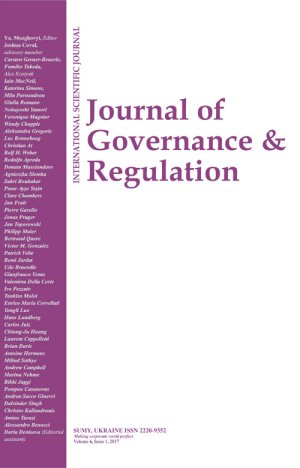
ARBITRABILITY LIMITATION IN CONSUMER (B2C) DISPUTES? : CONSUMERS´ PROTECTION AS LEGAL AND ECONOMIC PHENOMENON
Download This ArticleAbstract
Protection of consumers became a phenomenon of many governmental politics. Retrieval of a balance between privat autonomy and protection of a weaker party is very sensitive. The particular degree of consumers protection through limitation of contractual autonomy (in B2C contracts) as well as procedural autonomy (regarding B2C dispute resolution mechanisms), as chosen by particular governments, has both legal and economic effects, in positive and negative sense. The European Court of Human Rights adjudicated repeatedly that traditional court litigation is not capable to grant effective protection to contractual claims in many countries. Arbitration is therefore one of possible tools for B2C dispute resolution, even if many countries and obviously the EU Commission followe rather an opposite strategy (keeping down arbitrability of B2C disputes in the opposite to US trends). Arbitration is not a cure-all and definitely not a method suitable for the resolution of any and all types of disputes. It has its proponents as well as opponents. Indeed, it is hard to claim that a particular type (class) of disputes is a priori fit to be resolved in arbitration, rather than litigation, or vice versa. This also applies to consumer disputes (disputes from consumer contracts). It is fairly undisputable that consumers deserve a certain degree of specific protection in cases in which they are forced to enter into a particular contract and have no other option than to accept the conditions stipulated by the other party (the professional). But we cannot principally claim that the resolution of these disputes in court would be more suitable than arbitration or any other, the so-called alternative, dispute resolution method (ADR).
Despite the basically undisputed importance of and the need for special consumer protection (whether provided by special laws, typically in Europe, or on the basis of general legal principles and the application of general contract law, like in the USA), the degree of such protection can be considered as somewhat controversial. The weaker party does deserve special protection within the regime of the equal status of the contracting parties. But the intensification of this protection often results in the possibility of the consumer to abuse this standard; abuse of the consumer’s right should naturally no longer enjoy any protection. Typically, consumers have grown accustomed to the practice of exercising their right to rescind (cancel) the contract by the statutory deadline while, in the meantime, they actively use the goods and thereby fulfill the purpose of the purchase (this specifically applies to seasonal goods). Besides, even a consumer ought to be required to exhibit a reasonable and usual degree of responsibility for his or her legal (juridical) acts, including the conclusion of contracts and assumption of obligations.
Keywords: Arbitration, Arbitrability, Arbitrator, Abuse Of Rights, ADR, Autonomy, B2C Disputes, Class Actions, Consumer, Constitutional Principle, Contracts, Denial Of Justice, Duration Of Proceedings, European Convention Of Human Rights, European Court Of Human Rights, Enforcement Of Arbitral Awards, EU Law, Fair Trial, Expeditiousness Of Proceedings, Human Rights, Judicial Protection, Litigation, Minimization Of Costs, Ordinary Consumer, Ordre Public, Party To Arbitration, Professionals, Public Interest, Public Policy, Recognition Of Arbitral Awards, Weaker Party
How to cite this paper: Bělohlávek, A. J. (2012). Arbitrability limitation in consumer (B2C) disputes? : Consumers´ protection as legal and economic phenomenon. Journal of Governance and Regulation, 1(3-2), 156-170. https://doi.org/10.22495/jgr_v1_i3_c2_p2



















